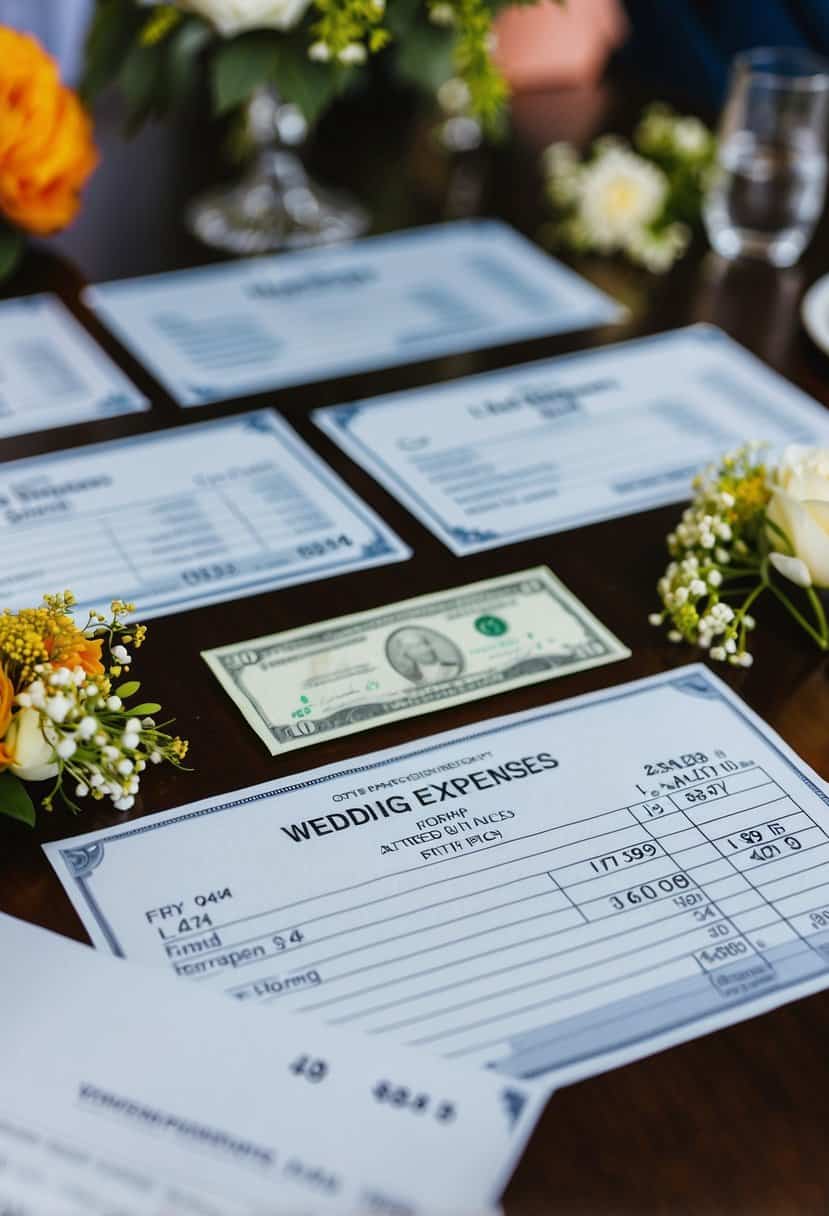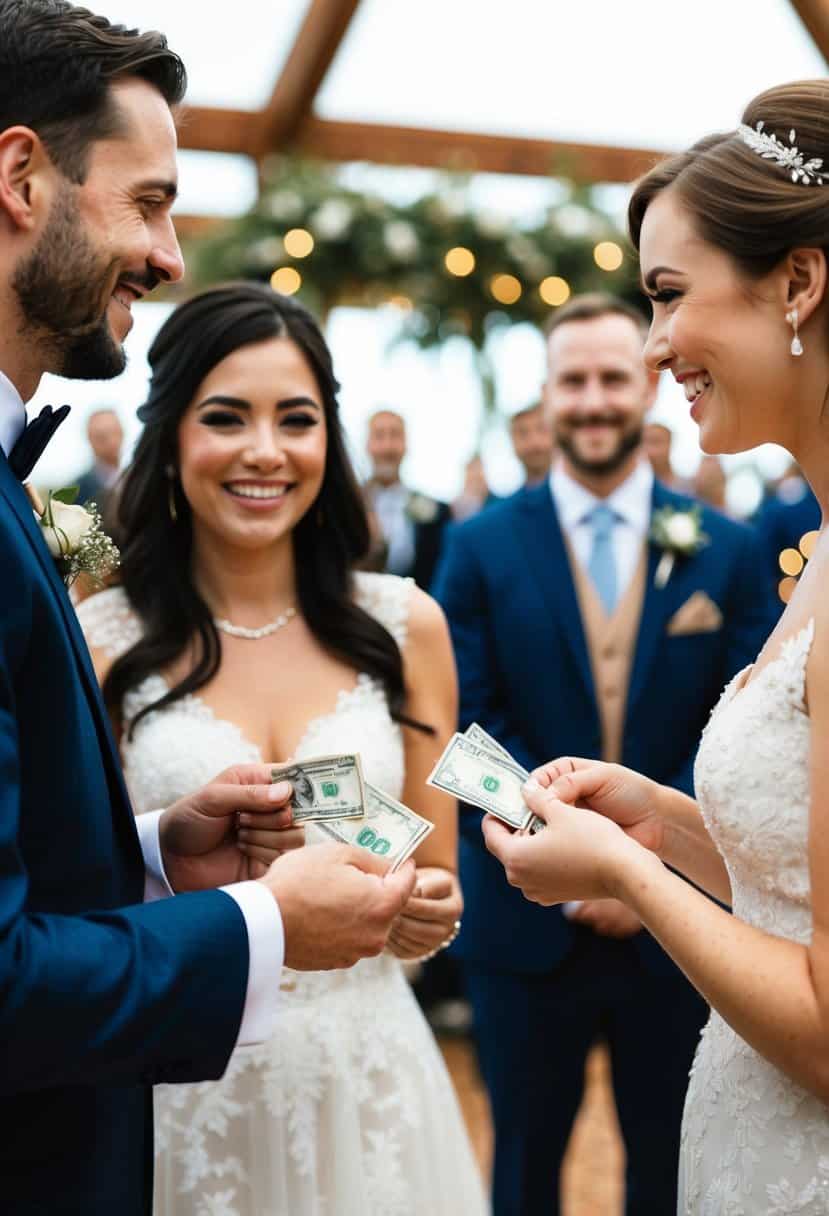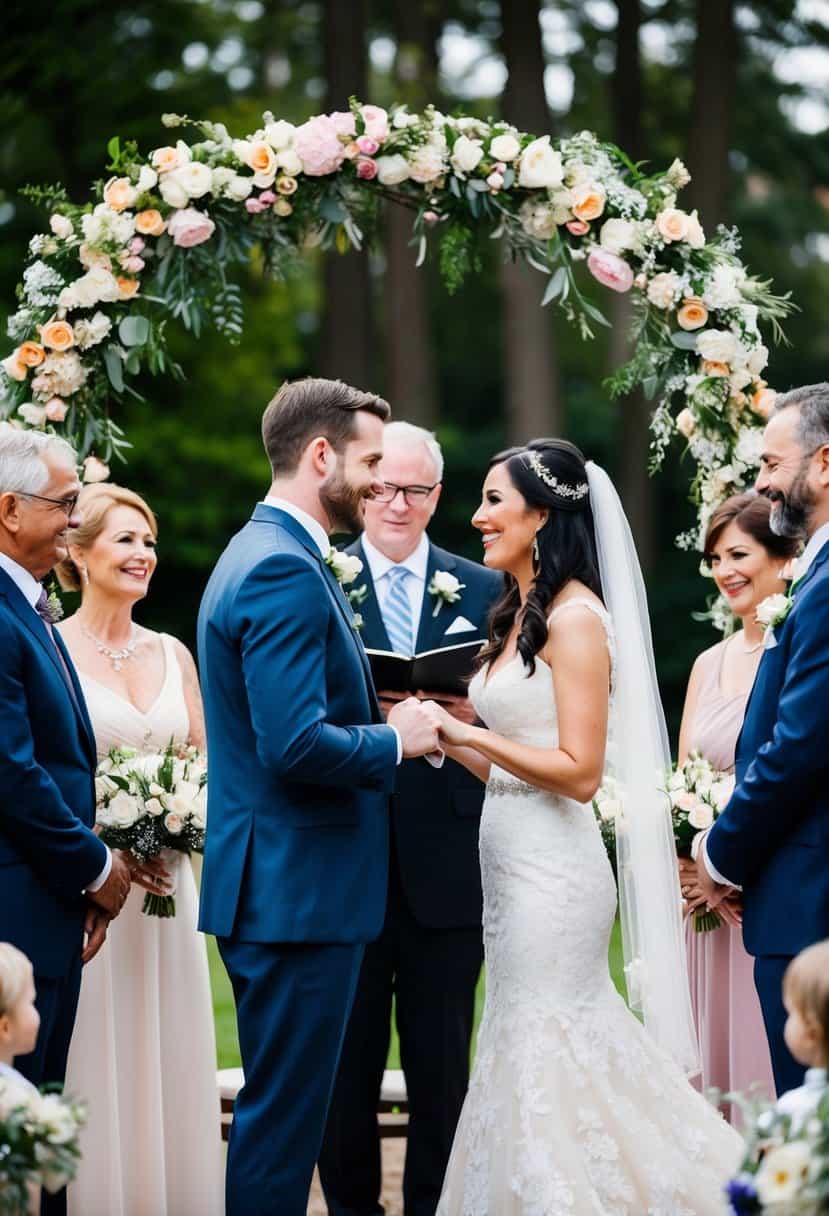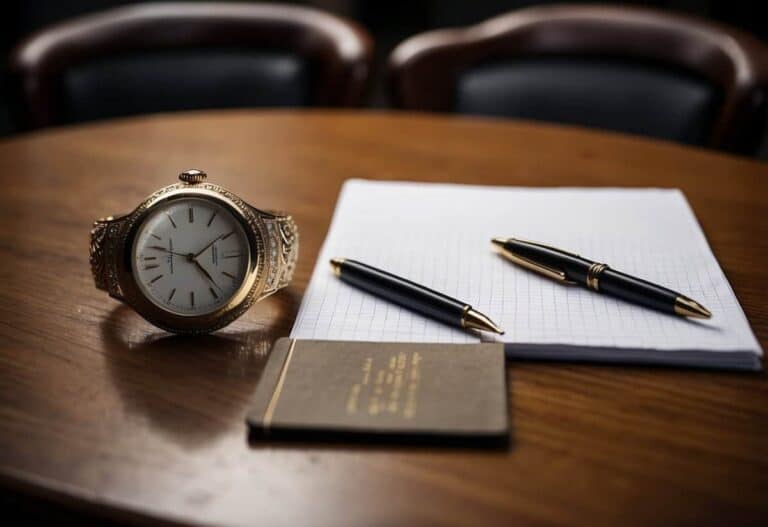How Much Do Groom’s Parents Pay for a Wedding? A Friendly Guide
Planning a wedding involves many details. Understanding who pays for what can help clarify your budget. Traditionally, the groom’s parents contribute to specific elements of the wedding, such as the marriage license and officiant fees. They may also handle costs for the groom’s attire and the groomsmen’s lodging, making it easier for everyone to enjoy the big day.

You might wonder how much the groom’s parents typically contribute to the overall wedding budget. According to a recent study by WeddingWire, they often contribute around $7,000. This amount can vary based on preferences and agreements between families, but knowing these figures can aid in your wedding planning.
Engaging the groom’s parents in planning can foster a shared experience and create memories that everyone cherishes. Whether it’s discussing costs for the wedding bouquet and boutonnieres or other important details, communication remains key in creating a memorable event.
Understanding Wedding Finances

Wedding finances can be tricky. With various expenses involved, it’s important to know who traditionally covers what. This section breaks down the roles of both the bride’s and the groom’s families to help you navigate wedding budgeting.
Who Pays for the Wedding?
Traditionally, the bride’s family covers a significant portion of the wedding expenses. This often includes the venue, catering, and the bridal gown. Meanwhile, the groom’s family may contribute to other essential costs. It’s common for couples today to share expenses or organize the budget based on their family’s ability.
A popular trend is dividing the budget among the couple themselves and both sets of parents, making it more manageable and fair. This modern approach reflects the shifting tradition where families work together to support the couple. Planning ahead and discussing the budget openly can make the process smoother.
The Role of the Groom’s Family
The groom’s family plays a key role in wedding finances. Traditionally, they handle expenses like the rehearsal dinner, marriage license, and officiant fees. They may also cover costs for floral arrangements, boutonnieres, and corsages.
Sometimes, the groom’s family hosts and pays for the engagement party. These contributions represent an important part of the overall wedding budget. Nowadays, it’s common for the groom’s family to offer more help if they can.
Each family should communicate their financial role clearly, helping to create a well-rounded and enjoyable celebration for everyone involved.
Groom’s Family Contributions

When it comes to wedding expenses, the groom’s family traditionally handles certain costs. These can range from clothing and event hosting to fees for legal matters. Understanding these roles can help you plan a smooth and joyful wedding ceremony.
Rehearsal Dinner
The rehearsal dinner is a special event that takes place before the wedding day. It usually includes close family and the bridal party. The groom’s family typically hosts and pays for this meal. This gathering offers a relaxed atmosphere for everyone to mingle and get acquainted. The cost can vary based on the venue choice and menu options. You might choose a casual setting like a family restaurant or something more formal.
Regardless of where you decide to host it, the rehearsal dinner sets the stage for the big day. It’s a chance for both families to share stories and make toasts. Organizing a memorable dinner allows everyone to feel welcomed and appreciated.
Groom’s Attire
The responsibility of paying for the groom’s attire usually falls on the groom’s family. This includes the suit or tuxedo and any accessories like shoes, cufflinks, and ties. When choosing your attire, consider the wedding theme and level of formality. These choices will guide you in selecting the perfect outfit for the occasion.
It’s important to have proper fittings to ensure the groom looks his best. Some couples choose custom-made suits, while others might rent or buy off-the-rack. Whatever your decision, the groom’s attire should make him feel confident and comfortable throughout the day. This aspect is often overlooked but plays a significant role in overall wedding style.
Wedding Rings and Bands
Traditionally, the groom’s family pays for the bride’s wedding ring. This gesture can vary in terms of cost, depending on the material and design chosen. Choosing a wedding band that complements the engagement ring is important. It should symbolize the couple’s commitment and taste.
It’s worth considering the style preferences of both the groom and the bride. Your choice might include simple gold bands or more elaborate designs with gemstones. Whatever the selection, the wedding rings are a lasting reminder of a couple’s bond and should reflect shared values and personalities.
Marriage License and Officiant Fee
Securing a marriage license and ensuring the officiant’s presence is a critical part of the wedding. The groom’s family may often contribute to these expenses. Obtaining the marriage license typically involves a small fee and a visit to the local clerk’s office. It’s essential to complete this step in advance.
The officiant fee varies based on the individual and whether it’s a religious or secular ceremony. Having an officiant that fits the couple’s vision for their wedding ensures the ceremony is meaningful and personal. This part of wedding planning confirms that everything is set for the legal and ceremonial joining of the couple.
Wedding Flowers and Decor
Wedding flowers and decor often fall under the groom’s family budget. The expenses can include bouquets, corsages, and floral arrangements at the venue. The style and amount of flowers can vary widely, affecting the total cost. Working with a florist, you can design arrangements that reflect the color scheme and theme of the wedding.
The groom’s family might also handle some decorative elements like aisle runners or altar decor. Beautiful floral design enhances the wedding ambiance and creates a romantic setting. Thoughtfully chosen decor plays a vital role in making the wedding feel unique and memorable for the couple and their guests.
Ceremony and Reception Expenses

When planning a wedding, the groom’s parents might take on specific expenses. Their contributions can cover transportation and capturing moments with photography and videography, to details at the reception, including catering and the cake.
Transportation
Transportation on your wedding day ensures everyone arrives on time and in style. Sometimes, the groom’s family pays for car rentals or shuttles. This can include classy limousines for the wedding party or buses for guests going from the ceremony to the reception. These options help in managing attendance smoothly and provide comfort.
Whether you prefer a vintage car or modern vehicles, having reliable transport is key. Proper planning avoids last-minute stress and keeps things moving efficiently throughout your big day.
Photography and Videography
Capturing every magical moment of your wedding is essential. The groom’s parents might contribute to hiring a professional photographer and videographer. This includes covering costs for engagement shoots, the main event, and sometimes post-wedding photography sessions.
Choosing skilled professionals ensures high-quality pictures and videos. Discuss different styles and packages to fit your needs. These lasting memories are cherished for years, so investing in quality is vital.
Reception Details
The reception often marks the highlight of the celebration. Costs may cover things like catering, drinks, and the wedding cake. The groom’s parents might handle expenses for certain items like the reception dinner or bar service.
Coordinating with caterers to offer a variety of dishes can accommodate different preferences. The choice of a wedding cake adds a sweet touch and reflects personal style. Ensuring ample refreshment options, like soft drinks and alcohol, keeps guests entertained and satisfied.
Overall, detailed planning in these areas helps create a memorable and pleasant experience for everyone.
Pre-Wedding and Post-Wedding Events

The groom’s parents often have various responsibilities in planning events that happen before and after the wedding day. These events provide a wonderful opportunity for both families to bond and celebrate the couple’s union.
Engagement Party
Hosting the engagement party is a way for the groom’s parents to celebrate the couple’s decision to get married. This event usually happens shortly after the proposal, allowing friends and family to share in the excitement.
You might host the engagement party at your home or choose a more formal venue like a restaurant. The important thing is to create a joyous atmosphere where everyone can enjoy getting to know each other better. Food and drinks can be simple, so the focus remains on the couple rather than elaborate arrangements. Including activities, like toasts or sharing stories about the couple, helps to make it more memorable.
Wedding Shower
The wedding shower is commonly a celebration organized for the bride, but the groom’s parents can also participate. This event is an opportunity to “shower” the couple with gifts they’ll need for their new life together.
You may opt to host a small gathering at your home or a larger event at a community center. Afternoon tea or light snacks often accompany this gathering. Including games or themed decorations can add a fun element to the celebration. Don’t forget to coordinate the guest list with the couple to ensure all their friends and family are included.
Welcome Party
A welcome party, held a day or two before the wedding, offers a chance for guests who traveled from afar to mingle and relax. The groom’s parents often host this event, setting a welcoming tone for the wedding weekend.
Whether it’s a casual barbecue or a more formal dinner, the key is to make everyone feel comfortable and appreciated. Think about including local foods or drinks to give out-of-town guests a taste of the area. It’s also nice to introduce family members and close friends who might not have met yet, creating a warm and friendly atmosphere.
Postwedding Brunch
A postwedding brunch is a relaxed event that usually happens the day after the wedding, allowing everyone to unwind and enjoy each other’s company one last time. Hosted by the groom’s parents, this event is a perfect way to say goodbye to guests.
This brunch can be held at a hotel, restaurant, or even at home. Consider serving breakfast classics or a mix of sweet and savory dishes to cater to different tastes. Providing a guestbook or photo board for sharing memories is a lovely touch that helps everyone to reflect on the joyous occasion.
Additional Considerations for the Groom’s Parents

Planning a wedding involves many responsibilities, especially for the groom’s parents. From honeymoon planning to selecting thoughtful gifts for the groomsmen, there are several key areas to focus on. Special family circumstances might also affect your contributions.
Honeymoon Planning
Helping with the honeymoon can be a great way to contribute. Some couples might appreciate assistance with honeymoon costs or even setting up a honeymoon fund. Discuss with the couple to understand what they prefer.
If they’re having a destination wedding, you might offer to cover additional travel or accommodation costs. This support shows your care and excitement about their next chapter together, making the experience memorable.
Groomsmen Gifts
Gift-giving for the groomsmen is another thoughtful way to contribute. Traditionally, groomsmen gifts reflect gratitude for their involvement. You can help select gifts that match the groom’s style and the wedding’s theme.
Think about personalized items or useful accessories like cufflinks, which are always a hit. This gesture, according to wedding etiquette, enhances the wedding’s personal touch and strengthens bonds within the wedding party.
Special Family Circumstances
Sometimes, special family circumstances require extra attention. For example, if a family member has specific needs or can’t attend the wedding, consider planning an alternative celebration or inclusive options.
This could mean virtual participation or making special arrangements for mobility needs. Understanding and accommodating these situations can prevent potential issues and ensure everyone feels included and valued in the celebrations.
Your thoughtful approach can enhance the joy and inclusivity of the wedding day.


